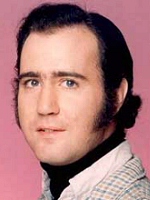"Could I turn this place all upside down, and shake you and your fossils out"

#5 One Beat, Sleater-Kinney, Kill Rock Stars, 2002
We were at an "Obama in '08" rally on Sunday in Chicago that featured a surprising turn. Halfway through Obama's speech a group of about 30 protestors stood up and started loudly chanting that American troops should get out of Iraq. While Obama, to his credit, attempted to engage them, security removed them reasonably quickly. But the tone of the rally changed - real flesh and blood people had called attention to something that upset them and shattered the univocal "pep rally" atmosphere. Obama pushed on and smoothed it over as best he could, but the reality stood - protest as a counter to politics as usual, as a stab at the status quo, had left its mark.
Such is the sound of Sleater-Kinney's amazing and profoundly moving One Beat. Written and recorded during the hey-day of post-9/11 American nationalistic furor, it galvanized and focused my attempt to deal with the dark political turn following the attack on the World Trade Center. The record became, for me, the sound of dissent. Opener "One Beat" is in my Top 100 songs of all time, using powerful drums and angular guitars to anthmically challenge consensus in the name of reason and progressive thinking. When Corin Tucker asks "If you think like Thomas Edison, could you invent a world for me?" and answers "Now all that's on the surface are bloody arms and oil fields" it's more than a political statement about current events - it's a call to think and create a new mode of engaging old problems, to take the Man head on and "shake you and your fossils out." The sentiment is genius and the music is rocking: a perfect combination. "Far Away" moves from the ideological to the personal, as Tucker relates what it was like nursing a newborn baby on the morning of September 11 and getting that phone call we all got: "Turn on the T.V." As she "watches the world explode in flames" and prays for her family's safety, a bigger question is on her mind: "Why can't I get along with you?" It's a simple query that doesn't hide behind a blind xenophobia or a fervent anit-nationalism, but that strikes at the heart of human realtions - why does difference often lead to violence? "Combat Rock" utilizes military drum work from the exquisite Janet Weiss to drive home a homily on protest everyone from Thomas Paine to MLK, Jr would agree with: "Since when is skepticism un-American? Dissent's not treason but they talk like it's the same." Powerfully prophetic words when you think about their context in 2002, a time when the machinations of the Iraq War were only nascent to the public but, as we now know, very prominent in the Bush administration's agenda.
Despite my opening diatribe, however, much of the album isn't focused on political issues. Love song "Oh!" brings emphatic tones to Carrie Brownstein 's empassioned "Nobody figures like you figured me out," and the horn driven feminist anthem "Step Aside," which has a band member name-dropping call and response section that demands a "knife through the heart of our exploitation" and commands to "disassemble your discrimination." Narrative "Prisstina" tells the tongue-in-cheek story of a young college girl tempted by "your dirty rock n'roll" but who ends up leaving her boy toys behind for a bright future. Portland gets a shout out on "Light-Rail Coyote," which focuses on the economic geography of the city, and "Funeral Song" recalls Hot Rock-era SK in the verse and then explodes into the chorus of "Turn out the light" with theramin and a pounding Janet. As Sarah referenced in her post on this record, closer "Sympathy" is perhaps the most moving song on the record. It is, more or less, Corin's prayer over her sick infant who almost died after birth and contains some of the most earnest and haunting phrases in my Top 25: "There is no righteousness in your darkest moment, we're all equal in the face of what we're most afraid of." In powerful seasoned punk style, One Beat utilizes this sentiment to prove that prayer and dissent are really just two sides of the same thing: hope.

1 comment:
Nice, and an especially appropriate closing line. OK, so off the top of my head, re: "Far Away," and the theme of this album as I read it: the very idea that the political (Bush, 9/11, the rest) is a lens through which to read the personal strikes me as the actual difference between 'us' and the 'terrorists.' Where, for the bad guys (and do we include the more committed elements of the American Evangelical movements here?), ideology/the political is the thing that ultimately determines, the thing they can't or don't want to get past and will sacrifice life for. 'Our' vision, however, doesn't want to sacrifice the personal, yet. In its more debased form, it becomes "defeat the terrorists by shopping," (i.e. all the utter bullshit of the 'end of ideology') but it also holds out for the possibility for some place/time/politics where we can resolve the contradiction between personal and political.
Post a Comment